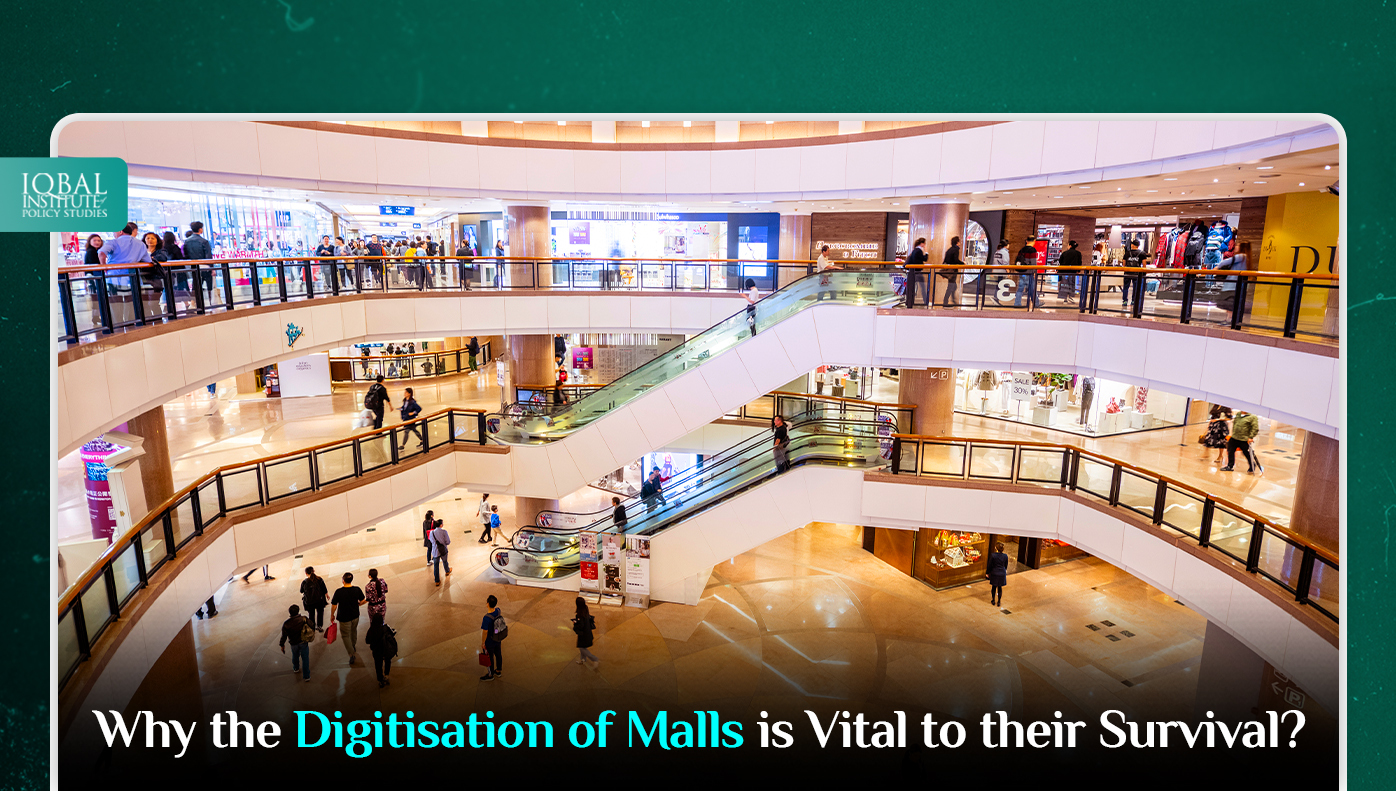Consumer data has emerged as a critical factor in the success of both e-commerce and physical retail. A recent survey revealed that 45% of shoppers are willing to share data on their product consumption habits, and younger generations, including 68% of Gen Z and 58% of Millennials, prefer buying directly from brands for a better shopping experience. This data-driven approach enables brands to personalize the shopping journey, enhancing customer satisfaction in the online space. Meanwhile, physical retail is catching up by leveraging technology and collecting data from millions of visitors (Forbes, 2022). Malls are capitalising on this information to offer targeted advertising to their tenants, ushering in a new era of refined and personalised in-store experiences, and bridging the gap between online and offline shopping realms. The future holds great promise for both e-commerce and physical retail as they embrace the potential of consumer data to revolutionise the way we shop.
E-commerce competition requires malls to have a digital presence
The future of shopping malls lies in integrating with the ever-expanding e-commerce economy, offering significant advantages to their tenants. Failing to do so will inevitably lead to a decline in their relevance as more consumer spending shifts to online platforms, eroding the share of spending in physical stores. To address this challenge, a cloud-based platform has emerged, acting as a connecting link for shopping centres. This platform aims to bridge the gap between the traditional brick-and-mortar experience and the digital realm, providing malls with the means to stay competitive and thrive in the rapidly evolving retail landscape.
The statement emphasises the need for shopping malls to adapt to the changing consumer behaviour driven by the rise of e-commerce. With more people opting to shop online, physical retail spaces face the risk of losing relevance and footfall. To combat this trend, shopping malls must embrace technology and the e-commerce ecosystem to enhance their offerings and attract customers.
Creating a better shopping experience is made possible by collecting data
In Pakistan, the need for digitisation in malls is becoming increasingly evident to stay competitive and cater to evolving consumer preferences. In this regard, the first step in executing a successful digital strategy is to anchor all digital activities against consumer profiles in a data layer. By doing so, malls can create valuable consumer profiles, which become the foundation for establishing direct digital connections with shoppers. These profiles serve as the first-party digital reach of the mall, ultimately leading to enhanced footfall for tenants and improved customer experiences.
In this digital transformation, some innovative technologies like AI-based facial recognition are gaining traction, enabling malls to track shoppers’ facial expressions and gather data on customer behaviour and satisfaction. However, while such technologies offer immense potential, they have also sparked controversy, raising privacy concerns. It becomes crucial for businesses in Pakistan to approach digitisation ethically, focusing on enhancing the shopper experience while respecting customer privacy.
By building direct relationships with shoppers through apps, reward programs, and online order and pick-up services, malls in Pakistan can establish a stronger connection with their customers. This approach, as suggested by Tonstad, revolves around obtaining consent and providing added value to the shoppers. By doing so, malls can build first-party datasets and establish genuine first-party customer relations, nurturing trust and loyalty among their audience.
The future is omnichannel, and that includes real estate
The future of the real estate industry is heading towards an omnichannel approach, where both digital and physical aspects seamlessly converge. The process of digitising malls is just the initial step in creating an omnichannel real estate experience. While it might seem contradictory at first glance, the idea is to align with the current trend of retail brands establishing their presence both online and in physical stores. If retail brands are embracing this omnichannel strategy, it makes sense for real estate to do the same. This could potentially lead to futuristic concepts like the metaverse, where virtual and physical realities merge. However, for the present, the key lies in enhancing technology and data collection within malls to ensure their continued relevance and success.
The statement emphasises the importance of adopting an omnichannel approach in the real estate industry, which essentially means providing a seamless and integrated experience across various channels, including online and offline platforms. In the context of malls and retail spaces, this approach suggests the integration of digital technologies and data collection to create a unified shopping experience for customers.
Moreover, the innovation of the metaverse, which is a concept of a shared virtual space that merges physical and virtual realities. While this may be a futuristic idea, the primary focus, for now, is on leveraging technology and data within malls to create an enriched shopping experience.
Conclusion
The digitisation of malls is crucial for their survival and relevance in the evolving retail landscape. Consumer data has become a key factor in the success of e-commerce and physical retail, enabling personalised shopping experiences and improved customer satisfaction. Malls that embrace technology and data collection can bridge the gap between online and offline shopping, offering targeted advertising to tenants and creating refined in-store experiences. As e-commerce competition intensifies, malls must establish a digital presence to remain competitive and attract customers. The future of real estate lies in adopting an omnichannel approach, blending digital and physical aspects to align with the trend of retail brands establishing themselves across multiple platforms. While the concept of the metaverse may be on the horizon, the current focus is on using technology and data to enhance the overall shopping experience for consumers. By approaching data collection ethically and building direct relationships with customers through digital platforms, malls can cultivate trust and loyalty among their audience, ensuring their continued vitality in the retail industry.
References
https://www.forbes.com/sites/brinsnelling/2022/04/14/why-the-digitization-of-malls-is-vital-to-their-survival/?sh=7c0197f6215c
This article is written by Waqar Ahmad. Waqar is a research analyst at the Iqbal Institute of Policy Studies (IIPS).



Leave a Reply